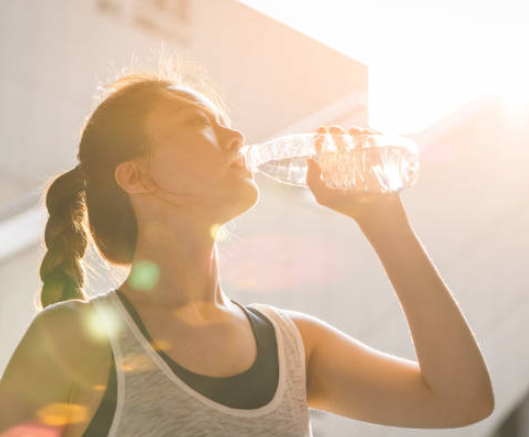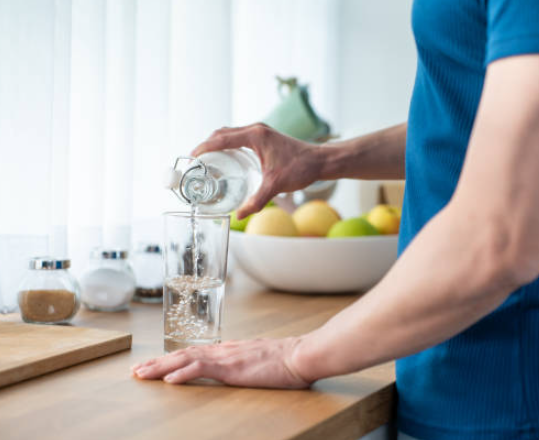That’s why it’s important to drink enough water consistently, even before signs of dehydration begin to appear. But how do you make sure you’re drinking enough? The doctor shared the telltale signs that you need to increase your water intake.
How to Tell if You Are Not Drinking Enough Water: The First Sign
Dr. Dana Cohen, an integrative medicine physician and Cure medical consultant, says the first sign that you’re not drinking enough water is if it’s been more than three hours since you last went to the bathroom, and when you go to the bathroom, your urine is dark yellow. “The best way to measure moisture levels is very simple: how often and how often you urinate. You should get up and pee every two to three hours of waking up, and if you don’t, you’re probably dehydrated,” she said.
Dr. Cohen says yellowish urine is a good indicator that you’re drinking enough water. If the color is dark yellow, orange, or brown, it is a sign that you are not drinking enough. If your urine is clear, she says, it’s a sign that you’re actually too hydrated and drinking more water than you need.
One issue to be aware of is if you eat foods that are associated with discoloration of urine, such as asparagus or beets, she said. If anything, there is another easy way to know that you’re not drinking enough water: if you’re thirsty. “The most common symptom of inadequate hydration is feeling thirsty. If you feel constantly thirsty, it is a sign that your body needs more fluids. Dr. Patrick Carter is a board-certified family physician and medical consultant at Prime IV Hydration & Wellness. However, he added that there are other causes that can cause people to feel thirsty that are not related to hydration, including having certain medical conditions such as diabetes or sickle cell anemia.
Both doctors say that if you feel dizzy, tired, headache, or muscle cramps and weakness, these are signs of dehydration. Dr. Cohen said symptoms of extreme dehydration include anuria (no urine output), dizziness that prevents people from standing or walking normally, low blood pressure, increased heart rate, fever, lethargy, confusion, and can lead to seizures, shock or coma. “These symptoms require immediate medical attention,” she said.
How to Stay Hydrated

Both doctors say water needs vary from person to person, but Dr. Carter says a good general guideline to follow is to drink eight glasses of eight-ounce water a day. Still, he adds, it’s important to take into account your individual needs, such as how active your lifestyle is. “It’s always a good idea to consult with a healthcare professional to determine the right amount of water for your specific needs,” says Dr. Carter.
When it comes to staying hydrated, both doctors say that while drinking water is important, drinking other fluids can help you meet your hydration goals. This includes herbal teas, unsweetened fruit juices, milk, and electrolyte drinks. “I also recommend green smoothies with chia seeds because the fibers in green smoothies act like sponges and retain moisture longer, while minerals transfer fluids to the center of the body more efficiently than regular bulk water,” says Dr. Cohen explained. Chia seeds can hold 30 times their own weight in water, which allows fluids and electrolytes to stay in the body longer, she adds.
If you’re having trouble remembering to drink enough water, Dr. Carter recommends using your phone or apps like Waterllama, My Water, or Aqualert to set reminders. He also recommends carrying a reusable water bottle with you wherever you go, both as a visual reminder and for your hydration needs.
Remember: it’s important to stay hydrated before any symptoms of dehydration are noticed. Pay attention to intake throughout the day and use urine color and frequency as hydration monitors. This way, you can perform at your best.

